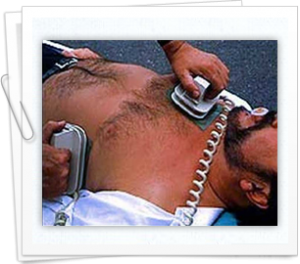Online CPR Certification Blog
Identifying heart attack symptoms and taking action
Date: April 26th, 2014
 A lot of people fear having heart attacks yet they barely know the symptoms that signify its advances. Acquiring MI (myocardial infarction) which is the knowledge of responding to a heart attack can go a long way in helping a person save a life.
A lot of people fear having heart attacks yet they barely know the symptoms that signify its advances. Acquiring MI (myocardial infarction) which is the knowledge of responding to a heart attack can go a long way in helping a person save a life.
Understanding what a heart attack is all about
A heart attack can be defined as the abrupt obstruction of an artery located in the heart. This results in a blood clot forming. This is a definition according to a cardiologist by the name Kunjan Bhatt who is based at the Austin Heart Hospital in Texas.
Clots are masses of blood that are stuck together to form a solid mass. A good example is the mass formed around an injury or wound when it stops bleeding. For a clot to start a heart attack, it must be present in the coronary arteries. This is the very artery that distributes oxygenated and fresh blood to your heart tissues. Bhatt says that the end result when a clot finally develops is death because it stops blood flow into your heart. This might be the very reason why mild heart attacks still affect the heart causing it to have irregular heartbeats or arrhythmia.
The different signs of a heart attack
Experiencing discomfort and pain in chest is one of the first major signs of a heart attack. It should be felt on the left side where the heart is located and have a pressure like feeling. The feeling can only be described as, something heavy sitting on top of your chest. The pain level should increase gradually or rapidly and move up in parts of the body such as the left side of the jaw, down the left arm, and in the back of your stomach. There will also some dizzy spells that might lead to fainting, shortness of breath and nausea.
It should be noted that the symptoms aren’t always necessarily the same for all victims experiencing a sudden heart attack. Women, diabetics and elderly people might experience atypical responses which include sharp pain in the chest or indigestion.
The required response to a heart attack
The first recommended thing to do is to chew some aspirin. This helps reduce the clot in your blood though you should still see a doctor immediately after. You can also ingest nitroglycerin if it has already been recommended to you by a doctor. A lot of people often overlook this but calling 911 adds to your chances of getting saved as you never know when you’ll collapse after experiencing the symptoms.
Bystanders are on the other hand advised to start performing CPR in case the victim collapses. They should check if they are unconscious or non-respondent before administering any kind of treatment. It’s also very important for them to call the paramedics and save the life while they wait for their arrival. It’s a well proven fact that CPR does help increase the survival rate of a person who is suffering from a sudden cardiac arrest outside a hospital setting.
